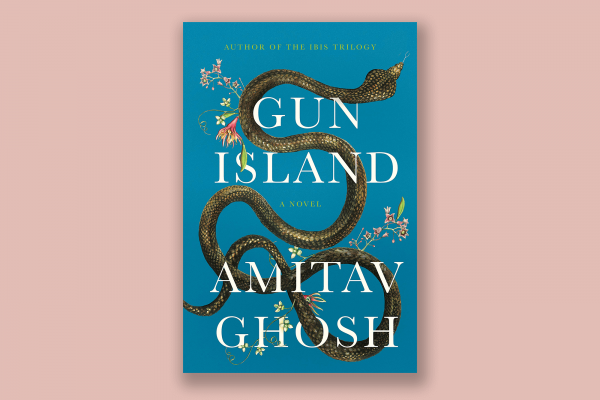WHILE THE CLIMATE crisis has reconfigured our relationships with each other, other creatures, and our places, fiction has not. It remains focused on the human’s internal, moral journey, as if human life is something circumscribed from the rest of creaturely life. Gun Island is a much-needed antidote to the anthropocentric ideal of the novel, one that meets the age of climate change with stories that are true to the new dimensions of relationships unfolding around us.
In his first novel since his nonfiction masterpiece The Great Derangement, in which he laid out a vision for a climate-changed literature, Ghosh illustrates the agency of nature: how in this Anthropocene age, shaped by human activity, our porous lives are intertwined with those of our nonhuman interlocutors, who become increasingly present in our lives through climate-change-driven typhoons, fires, and species migration. He tells a story of stories, not recasting the tales of modernity, but reaching back into Bengali folklore to guide us through this uncanny age. For, as one of Gun Island’s characters says, “Only through stories can invisible or inarticulate or silent beings speak to us; it is they who allow the past to reach out to us.”
Read the Full Article

